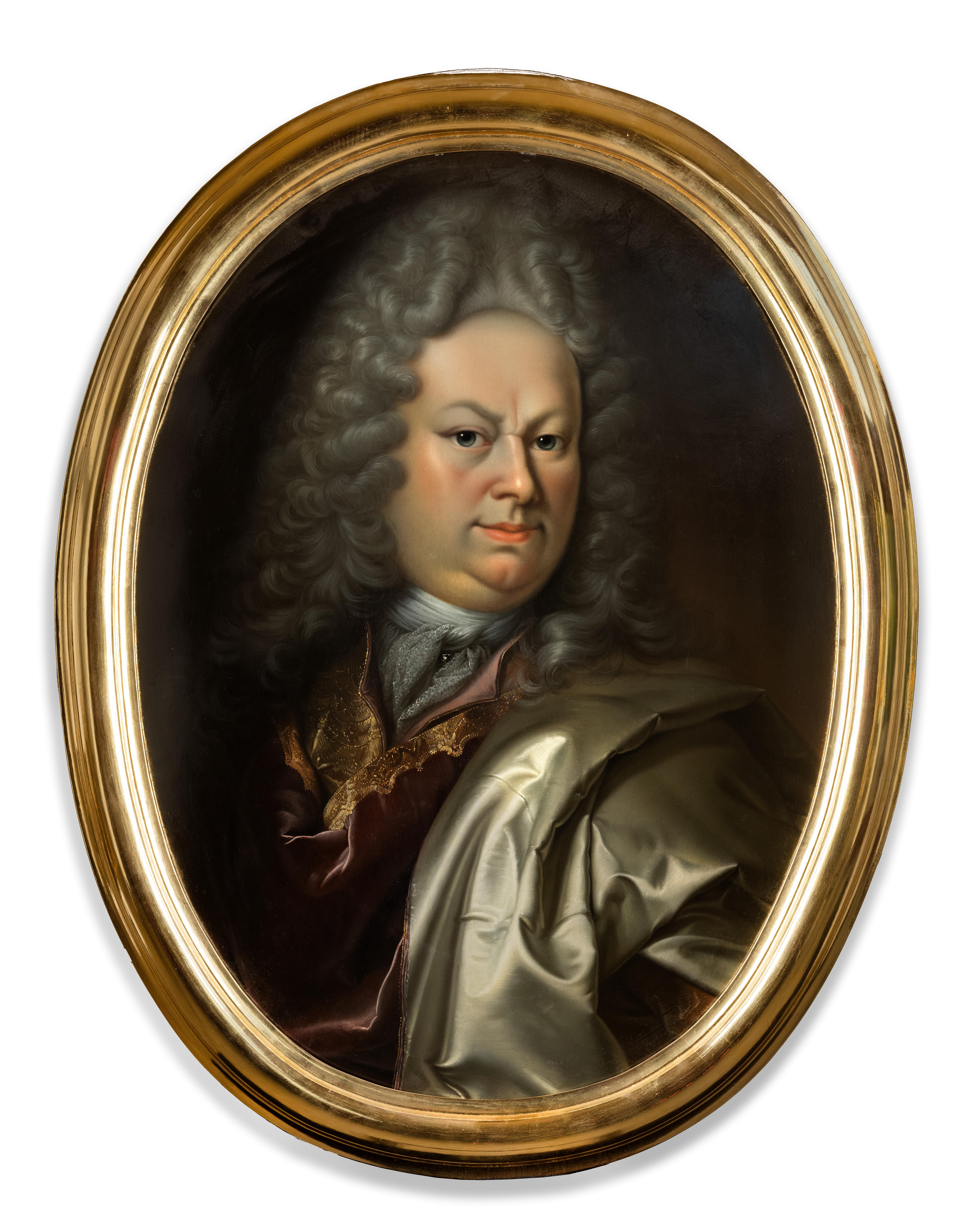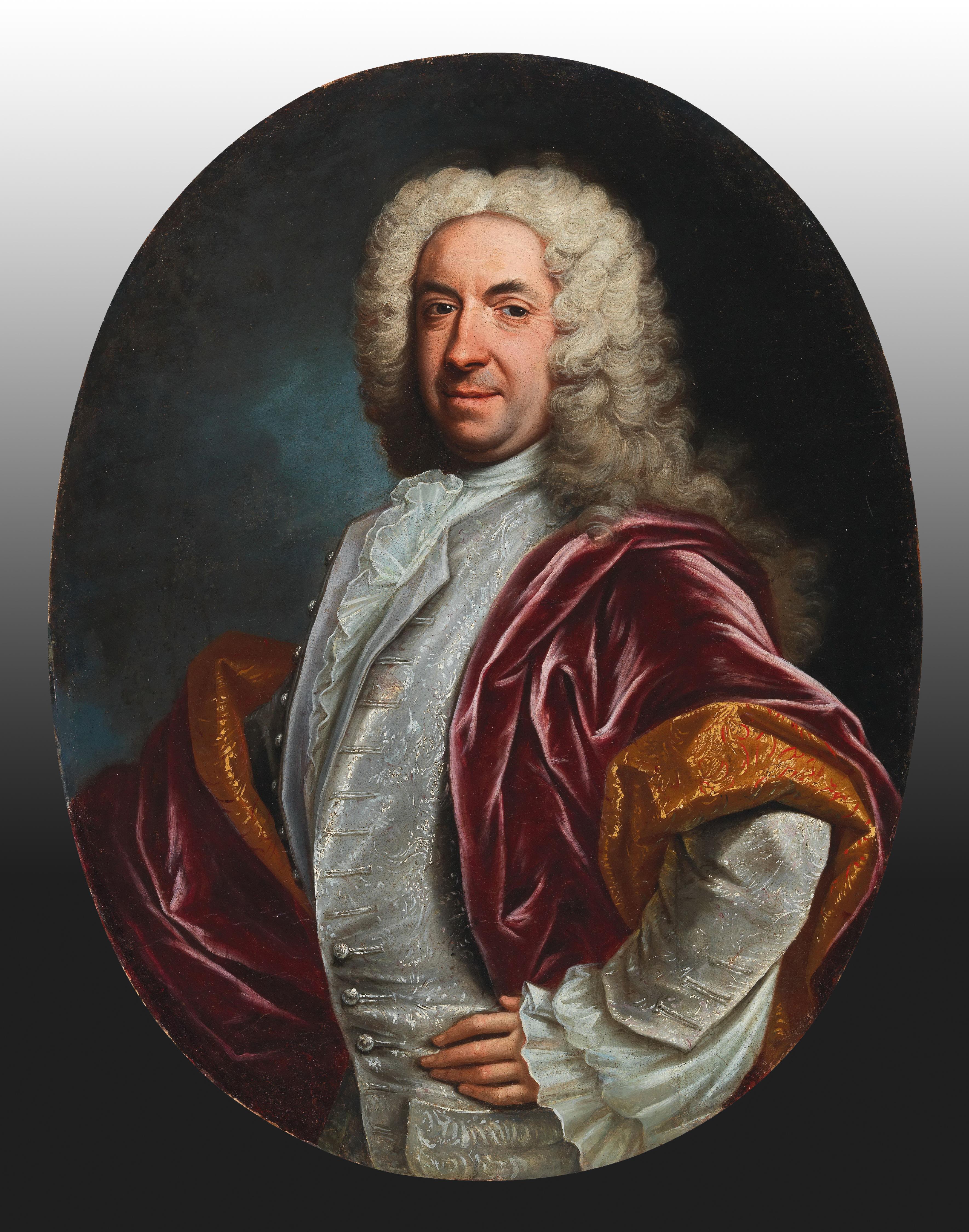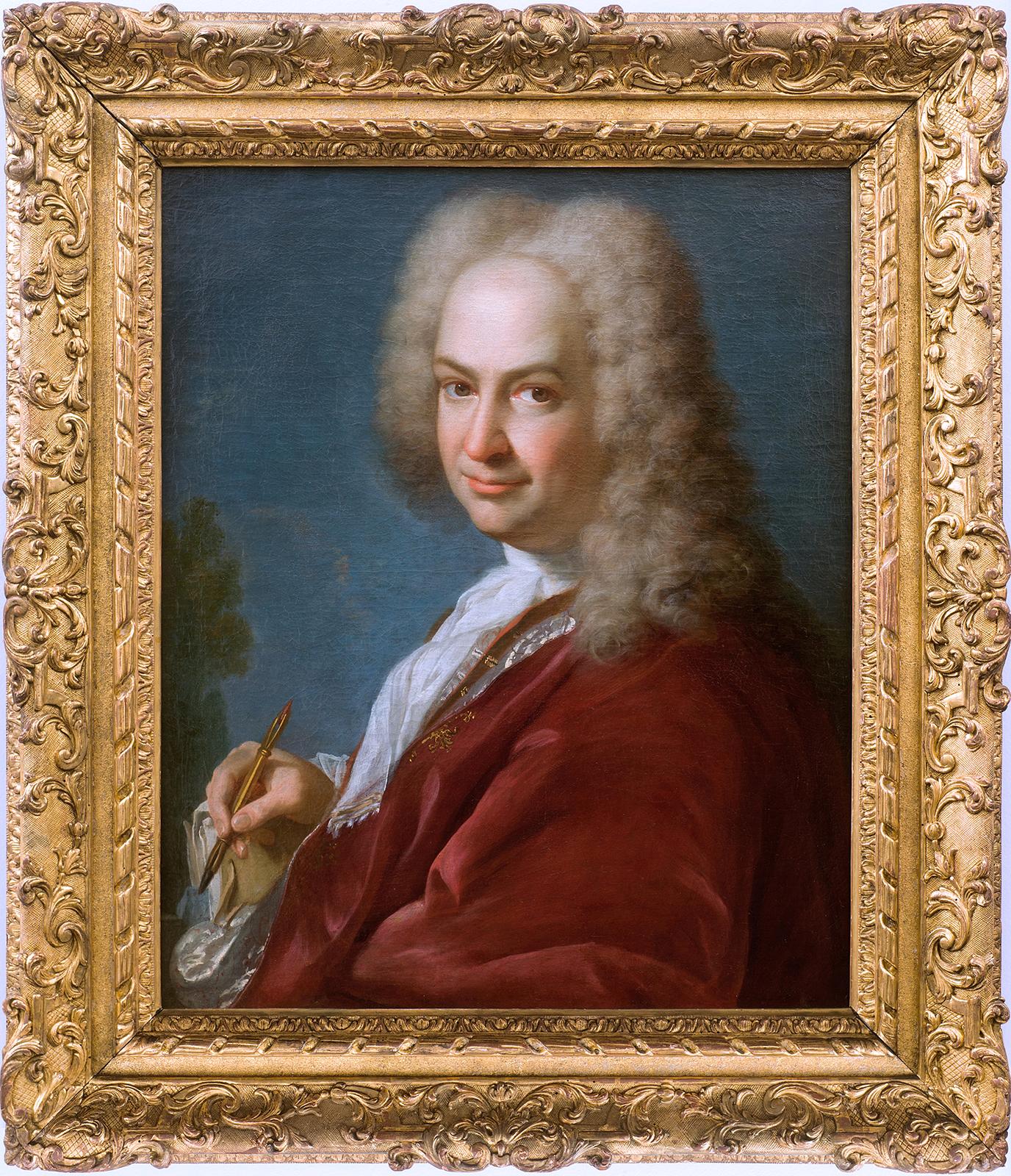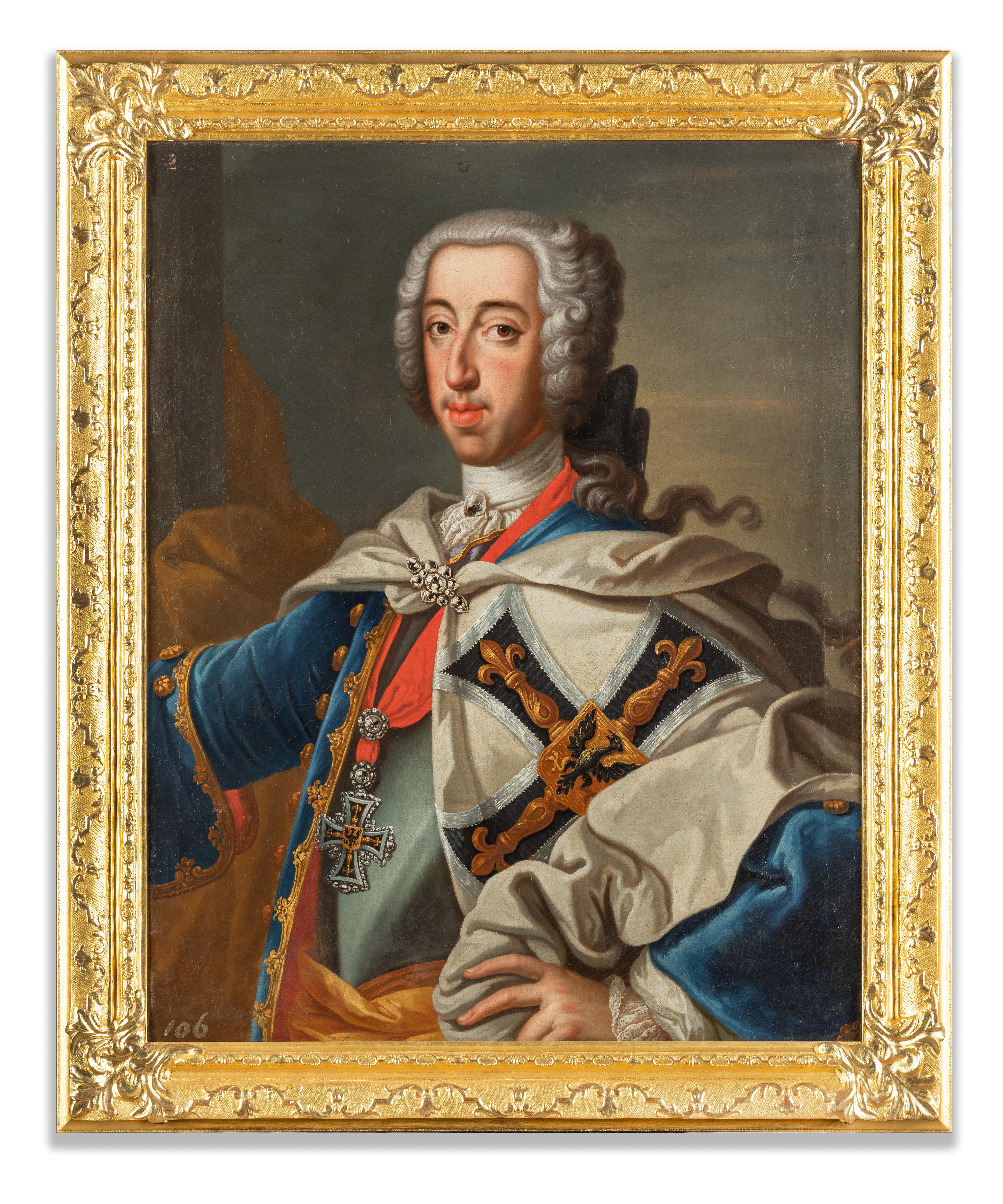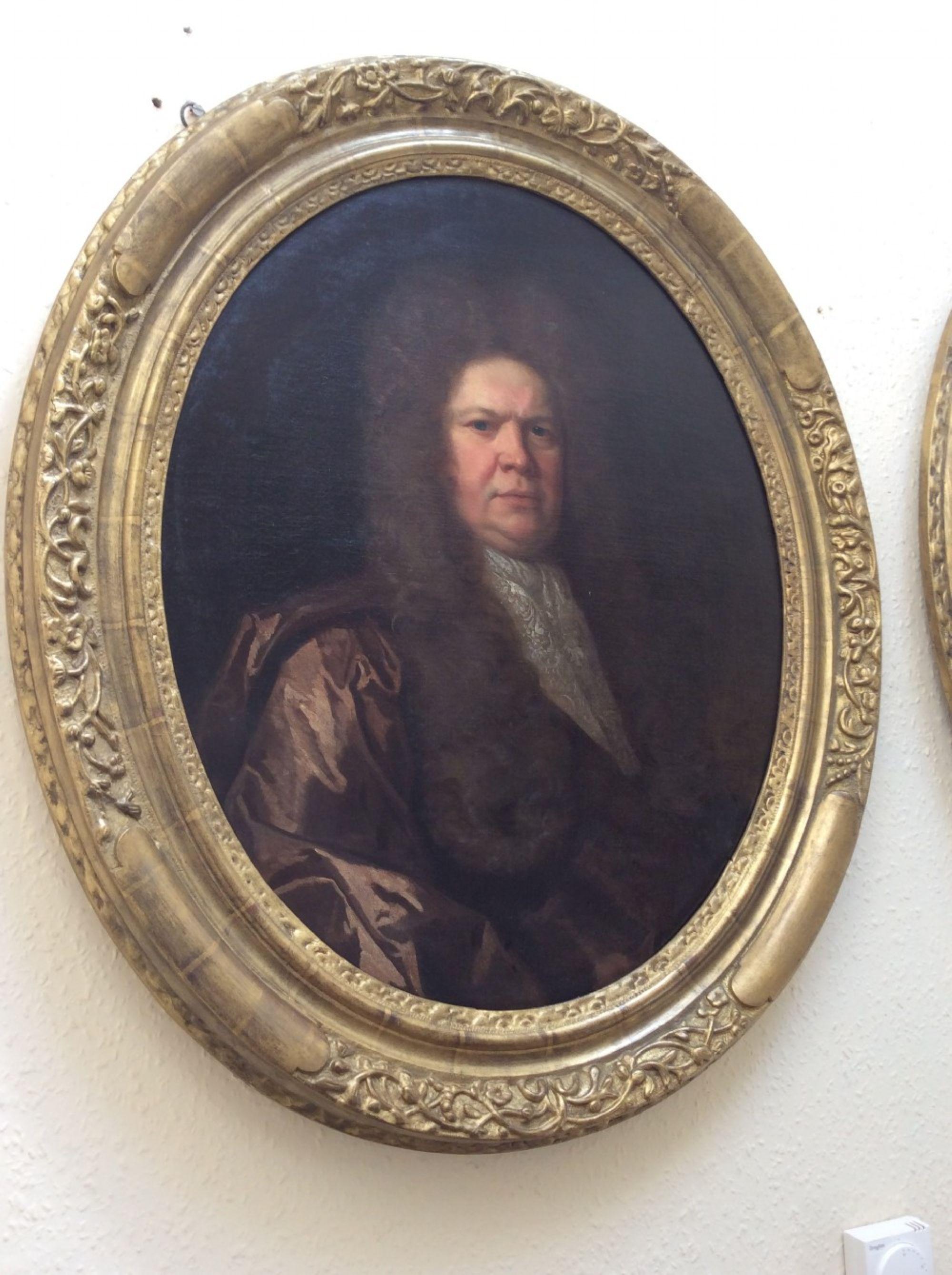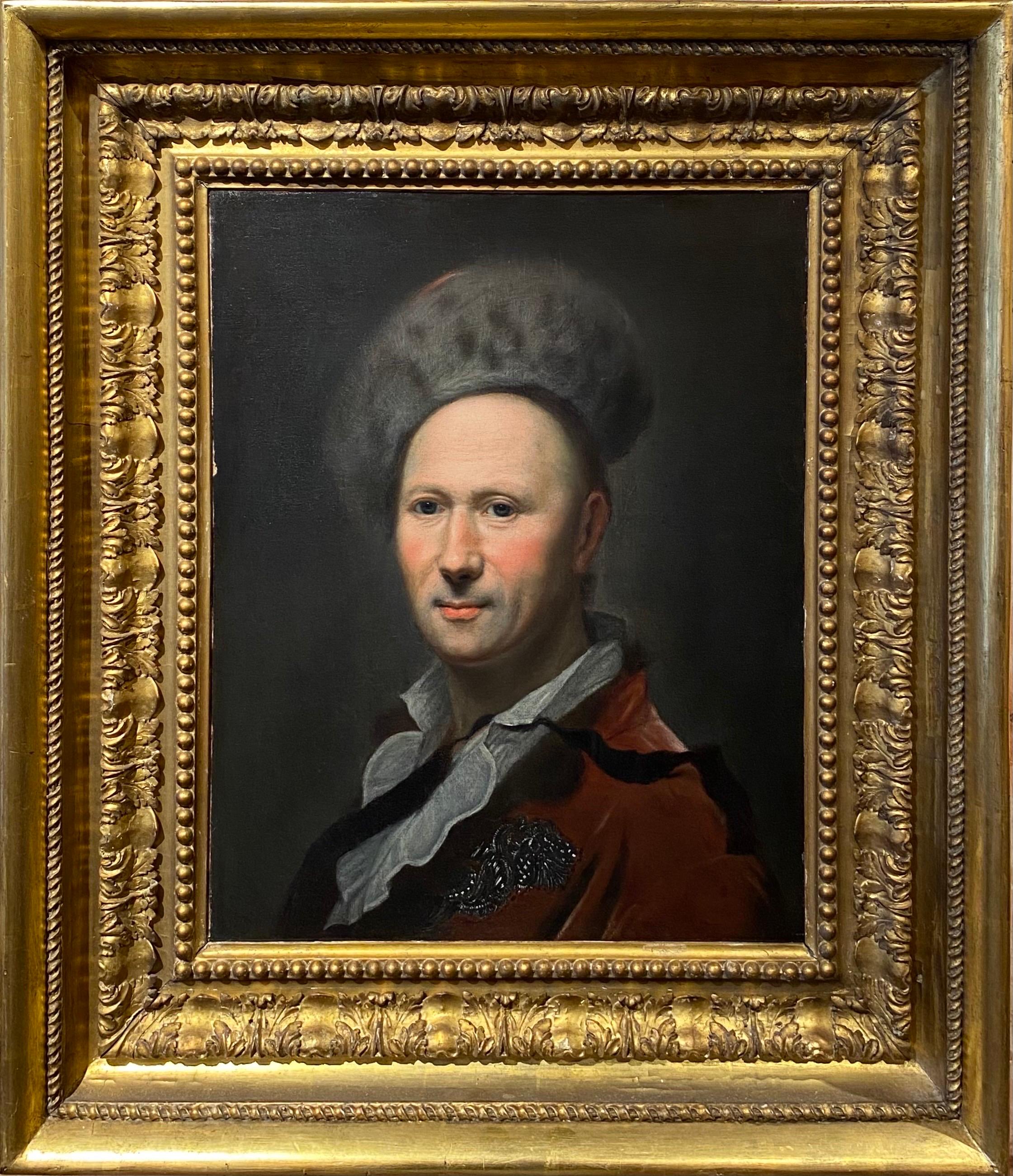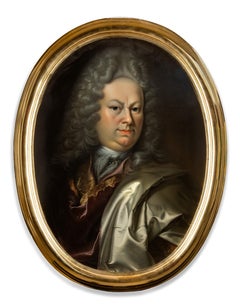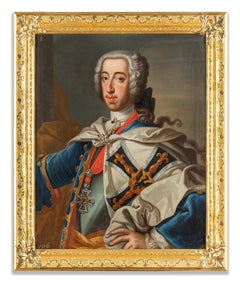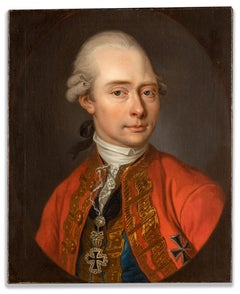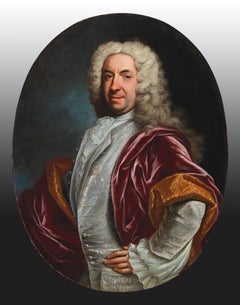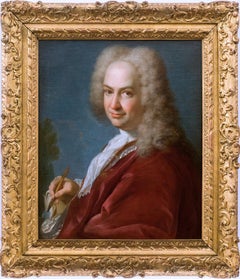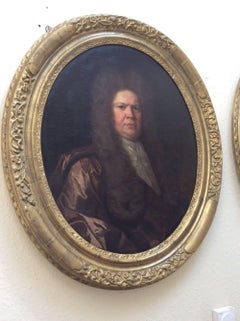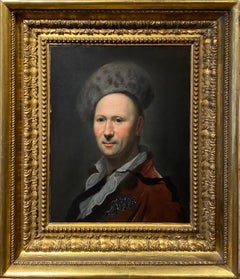Items Similar to Self Portrait of Schildbach, Court Painter Schildbach, Gotha, Convex Copper
Want more images or videos?
Request additional images or videos from the seller
1 of 10
Christian SchildbachSelf Portrait of Schildbach, Court Painter Schildbach, Gotha, Convex Copperc. 1720
c. 1720
$42,976.02
$53,720.0220% Off
£31,701.78
£39,627.2220% Off
€36,000
€45,00020% Off
CA$59,321.30
CA$74,151.6320% Off
A$65,912.45
A$82,390.5620% Off
CHF 34,647.57
CHF 43,309.4620% Off
MX$804,533.42
MX$1,005,666.7820% Off
NOK 438,068.74
NOK 547,585.9320% Off
SEK 410,699.25
SEK 513,374.0720% Off
DKK 274,051.58
DKK 342,564.4820% Off
About the Item
Christian Schildbach was a very talented artist with his own style.
Art painter in Plauen, then court painter in Dresden; around 1706 art painter in Vienna, also active in Bamberg (1714); 1708-1741 ducal art chamberlain and court painter in Gotha; one of his sons, Johann Christian Schilbach (ca. 1708-1757) succeeded his father in this office.
One of his specialities were portraits on convex copper (German: "bombiert"). Through this technique he created a very realistic impression.
- Creator:Christian Schildbach (1668 - 1741, German)
- Creation Year:c. 1720
- Dimensions:Height: 29.14 in (74 cm)Width: 21.26 in (54 cm)
- Medium:
- Movement & Style:
- Period:
- Condition:
- Gallery Location:Greven, DE
- Reference Number:1stDibs: LU1550211830482
About the Seller
4.8
Gold Seller
Premium sellers maintaining a 4.3+ rating and 24-hour response times
Established in 2011
1stDibs seller since 2021
29 sales on 1stDibs
Typical response time: 6 hours
- ShippingRetrieving quote...Shipping from: Greven, Germany
- Return Policy
Authenticity Guarantee
In the unlikely event there’s an issue with an item’s authenticity, contact us within 1 year for a full refund. DetailsMoney-Back Guarantee
If your item is not as described, is damaged in transit, or does not arrive, contact us within 7 days for a full refund. Details24-Hour Cancellation
You have a 24-hour grace period in which to reconsider your purchase, with no questions asked.Vetted Professional Sellers
Our world-class sellers must adhere to strict standards for service and quality, maintaining the integrity of our listings.Price-Match Guarantee
If you find that a seller listed the same item for a lower price elsewhere, we’ll match it.Trusted Global Delivery
Our best-in-class carrier network provides specialized shipping options worldwide, including custom delivery.More From This Seller
View AllPortrait of a Gentleman, Halung, Court Painter Schildbach, Gotha, Convex Copper
Located in Greven, DE
Christian Schildbach was a very talented artist with his own style.
Art painter in Plauen, then court painter in Dresden; around 1706 art painter in Vienna, also active in Bamberg (...
Category
18th Century Baroque Portrait Paintings
Materials
Copper
Portrait after Franz Josef Winter, Clemens August of Bavaria, Archbishop Cologne
Located in Greven, DE
Clemens August Ferdinand Maria Hyazinth, Duke of Bavaria (* August 16, 1700 in Brussels; † February 6, 1761 in Koblenz) was as Clemens August I from 1723 to 1761 Archbishop of Cologne and thus at the same time Elector of the Holy Roman Empire, sovereign of the associated archdiocese as well as the tributary lands of Recklinghausen and Westphalia. In addition, he was Legatus natus of the Holy Apostolic See in Rome and Archchancellor of Imperial Italy. Furthermore, he combined the offices of Grand Master of the Teutonic Order...
Category
18th Century Rococo Portrait Paintings
Materials
Canvas
Portrait Johann Theodor Bavaria, Son of Prince Elector, by Joseph Vivien, Rococo
By Joseph Vivien
Located in Greven, DE
Portrait of Johann Theodor of Bavaria (1703-1763)
by Joseph Vivien
Johann Theodor of Bavaria (* September 3, 1703 in Munich; † January 27, 1763 in Lièg...
Category
18th Century Rococo Portrait Paintings
Materials
Canvas, Oil
Portrait of a noble Gentlemen, Max Franz of Austria, Archduke, Meytens, Habsburg
Located in Greven, DE
Portrait of Max Franz as coadjutor of the Teutonic Order
Oil on canvas, 54 x 45 cm
Maximilian Franz of Austria
Austrian Archduke Maximilian II. Franz, was Grand Master of the Teutoni...
Category
18th Century Rococo Portrait Paintings
Materials
Canvas, Oil
J Haid, Martin Van Meytens, Engraving, Portrait Count Ferdinand Plettenberg
Located in Greven, DE
Johann Jakob Haid (1704-1767), engraver
Johann Stenglin (1715-1770), engraver
Martin van Meytens (1695-1770), inventor
Ferdinand Count of Plettenber...
Category
18th Century Baroque Portrait Prints
Materials
Engraving
Portrait of Emperor Ferdinand I. Prague School, 17th Century, Copper, Old Master
Located in Greven, DE
Unknown artist
Prague School
Portrait of Emperor Ferdinand I. (1503-1564)
17th century
Oil on copper, 21,3 x 16,8 cm
Provenance:
Private collection, Pennsylvania, until 2016
This work by an unknown artist is a semi-portrait in predominantly brown-green tones.
brown-green tones of the emperor Ferdinand I, who was crowned emperor in 1558.
Ferdinand I of the Habsburg dynasty, who was crowned emperor in 1558.
in a suit of armour lavishly decorated with gold ornaments.
The portrait of Ferdinand...
Category
17th Century Baroque Portrait Paintings
Materials
Copper
$17,906 Sale Price
40% Off
You May Also Like
Baroque Portrait of a gentleman 18th century Italian master by Domenico Parodi
By Domenico Parodi (Genoa, 1672 - 1742)
Located in Stockholm, SE
We are grateful to Prof. Daniele Sanguineti for suggesting the attribution to Domenico Parodi (1672 - 1742). He dates the painting into the period between 1730 and 1740. Domenico Par...
Category
1730s Realist Portrait Paintings
Materials
Canvas, Oil
Presumed artist self-portrait
Located in BELEYMAS, FR
Louis-Gabriel BLANCHET
(Versailles, 1701 – Rome, 1772)
Presumed self-portrait of the artist
Oil on canvas
H. 73 cm; W. 60 cm
Circa 1730
Originally presented in a Restoration period frame with a "Mignard" cartouche, this beautiful painting initially appeared to us as a work from northern Italy. However, it exuded a rather French form of refinement, suggesting that its artist may have assimilated a dual influence from both sides of the Alps.
We thank our colleague and friend Philippe Mendès for spontaneously and judiciously "bringing out" the name of Louis-Gabriel Blanchet, a Romanized French portraitist, whose spirit and stylistic characteristics we clearly recognize here.
Blanchet's "French" years, before his final departure for Rome in 1728, following his winning of the second Grand Prix for painting after Subleyras in 1727, are extremely poorly documented. His father, Gabriel, was valet to Blouin, himself Louis XIV's first valet at the time. According to Thierry Lefrançois, Blanchet was one of the few students of Nicolas Bertin (1667-1736), whose studio he is said to have joined in the early 1720s. At a baptism on March 24, 1724, where he was godfather, he is mentioned as a painter in the picture store of the Duke of Antin, the director of buildings between 1708 and 1736. At this time, he was probably already married to Jeanne Quément, with whom he had a daughter also named Jeanne, who would marry Nicolas Aviet, the son of a valet in the queen's wardrobe, in Versailles in 1738.
When Blanchet arrived in Rome in October 1728, he was accompanied by Subleyras, Trémolières, and Slodtz. He enjoyed the goodwill of Vleughels, the director of the Académie de France, which had been based at the Palazzo Mancini since 1725, even though the latter was not always kind to our resident. From 1732, he was under the protection of the Duke of Saint-Aignan when he took up his post as ambassador to Rome. Along with Slodtz and Subleyras, they formed a trio of friends, joined by Joseph Vernet shortly after his arrival in Rome in 1734. Slodtz and Blanchet, on the occasion of Subleyras's marriage in 1739, were there to attest that their friend was not bound by any marital commitment, and Blanchet was a witness at Vernet's wedding in 1745.
It is most likely from these early years in Rome that our portrait of the artist dates, the expression and turn of his face irresistibly reminiscent of a self-portrait. The still relatively youthful features may correspond to Blanchet's thirty-something years, and the fluffy wig was still fashionable at this time.
The painting fits well with the depiction of a young painter wanting to display both the beginnings of success and a certain simplicity or restraint. A slight smile expresses a form of assurance in this man with a gentle, sincere gaze and a face radiating a keen sense of wit. We find here the air of intimacy present in almost all of Blanchet's portraits, even those from the 1750s and 1760s, as well as an almost complicity with the viewer. The spirit of the painting is quite close to that of the presumed portrait of Bouchardon (painted around 1730) and the portrait of Pannini, painted in 1736, but it possesses a more natural quality, notably thanks to the absence of decorum. Our work exhibits the characteristics of Blanchet's paintings: elegance, luminosity (especially in the whites), vibrant and refined colors (here, the harmony of the garnet of the garment and the slate blue of the background, whose uniformity is tempered by a very sketched landscape and a grove of greenery), light complexions, rather rosy cheekbones, often full lips, and rather tight framing.
According to the Academy's rules, Blanchet's stay should have ended in the spring of 1732, but, for reasons unknown, he remained in the Eternal City until his death, as did his friend Subleyras, with whom he shared accommodation until the late 1730s. The latter regularly called upon him to collaborate on his paintings, such as The Meal at Simon's. Through Saint-Aignan's intervention, Blanchet was employed in the late 1730s by the Stuart princely family, then exiled in Italy. He notably produced copies (now lost) after Liotard of the portraits of Charles Edward and Henry Benedict, the sons of James III Stuart. The latter also commissioned three other portraits (now in the National Portrait Gallery in London), whose more formal character contrasts with the intimate spirit of Blanchet's portraits. Blanchet frequented English painters, such as the landscape painter Richard Wilson, and studied with the Scottish portraitist Katherine Read...
Category
1730s French School Portrait Paintings
Materials
Oil, Canvas
Michael Dahl (circle) 17th century portrait of Sir William Cowper
By (Circle of) Michael Dahl
Located in York, GB
Portrait of Sir William Cowper [1639-1706] Circle of Michael Dahl. (unsigned)Oil painting on canvas
17th century oval, bust-length, with a long dark wig,...
Category
17th Century Old Masters Portrait Paintings
Materials
Oil
$5,212 Sale Price
35% Off
Free Shipping
Portrait of Conrad Friedrich Hurlebusch, Early 18th Century Oil Painting
By Dominicus van der Smissen
Located in London, GB
Dominicus van der Smissen
Early 18th Century
Portrait of Conrad Friedrich Hurlebusch
Oil on canvas
Image size: 20½ x 16¼ inches
Period gilt frame
This is a portrait of Conrad Friedrich Hurlebusch, composer, Kapellmeister and organist, whom Van der Smissen most probably portrayed during his stay in Hamburg, Brunswick or Amsterdam. The identification is based on the reproduction of the portrait which was engraved by Pieter Anthony Wakkerdak (1740- 1774).
Van der Smissen has reduced the face of the sitters to an egg-shaped oval in three-quarter view, applying diminution to one half of the figure’s torso, which is farther away from the viewer. This partial side view, with the head turned to look at the viewer over the shoulder, creates spatial depth and brings the figure to life by avoiding the stiffness of a frontal depiction.
Because the artist chose to highlight the figure from above, a distinct shadow is cast under the tip of the nose, in the shape of a triangle. This is an often recurring and almost ‘signature’-like feature in Van der Smissen’s oeuvre.
Hurlebusch's garments are of a very high quality and serve to reflect the sitter’s wealth, status and elegance. During this period, gentlemen often shaved their heads in order to facilitate the wearing of a wig, which wouldbe worn with a suit. Here Hurlebusch has been depicted in a luxurious turban-like cap lined with lynx fur, a highly fashionable and expensive material at the time.
Over his shirt, he wears a velvet fur-lined gown adorned with decorative clasps fashioned from silver braid. The elegant informality of his appearance can be seen in his unbuttoned shirt and the unfastened black ribbon hanging from his button hole, which has been artfully arranged into a fluttering drape by the portraitist.
The Sitter
Hurlebusch was born in Brunswick, Germany. He received the first instructions in his field from his father Heinrich Lorenz Hurlebusch, who was also a musician. As an organ virtuoso, he toured Europe, visiting Vienna, Munich and Italy.
From 1723 to 1725 he was Kapellmeister in Stockholm; later he became Kapellmeister in Bayreuth and Brunswick, and lived in Hamburg from 1727 to 1742, where he had contact with fellow composers Johann Mattheson and Georg Philipp Telemann. He made his living composing, performing and teaching.
In 1735 and 1736, he is believed to have visited Johann Sebastian Bach in Leipzig, who promoted Hurlebusch’s compositions as the local seller...
Category
Early 18th Century Old Masters Portrait Paintings
Materials
Canvas, Oil
Italian men portrait
By Giovanni Maria delle Piane dit Mulinaretto (Genoa 1670 - Monticelli d´Ongina 1745)
Located in BELEYMAS, FR
Giovanni Maria DELLE PIANE, known as IL MULINARETTO
(Genoa, 1660 – Monticelli d'Ongina, 1745)
Portrait of a man
Oil on oval canvas
H. 108 cm; L. 83 cm
Provenance: Nino Ferrari Colle...
Category
1740s Italian School Portrait Paintings
Materials
Canvas, Oil
Portrait De La Fosse Rigaud Paint Oil on canvas 17/18th Century Old master Art
Located in Riva del Garda, IT
Hyacinthe Rigaud (Perpignan 1659 - Paris 1743) attributable
Portrait of the painter Charles de La Fosse (1636-1716)
oil on canvas
60 x 52 cm/ In a beautiful frame cm. 113 x 78
The ...
Category
18th Century Old Masters Paintings
Materials
Oil
$11,794 Sale Price
20% Off
More Ways To Browse
Antique Copper Frame
Antique Christian Art
Antique Copper Painting
Antique Christian Painting
Vienna 18th
18th Century German Portraits
Portrait German 18th Century
17th Century Dutch Portrait
Oil On Canvas Military Portraits
Blue Venus
Portrait Of A Little Girl
18th Century French Portrait Painting
Portraits Actress Painting
Lady B
Captain Portrait
18th Century Portrait Of Man
Merchant Portrait
19th Century Portrait Child
